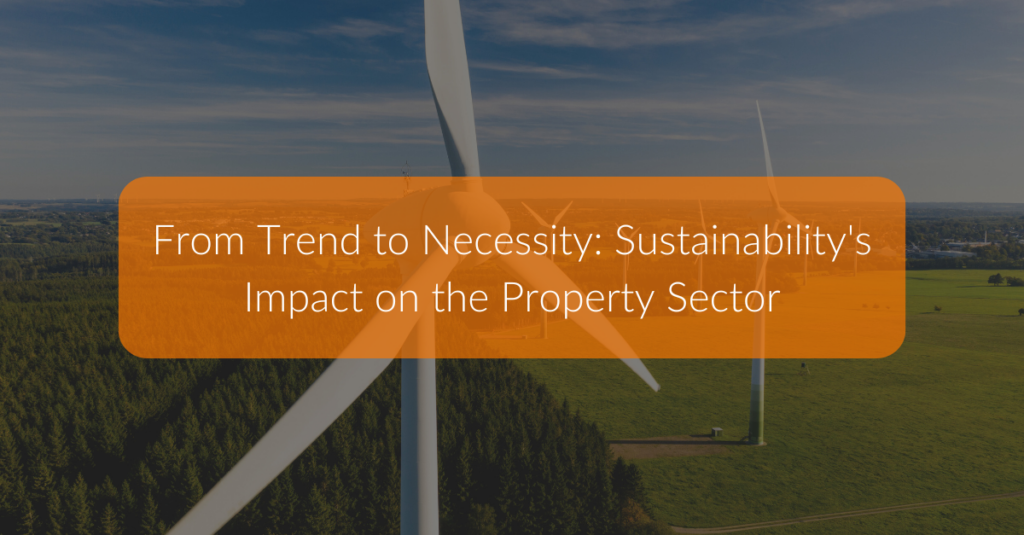
Sustainability is not just a trend; it is a fundamental shift reshaping the property sector. As climate change concerns evolve and environmental regulations tighten, conveyancers, at the business end of property transactions, are pivotal in guiding clients through all the complexities.
But how, with increasing expectations from home buyers, can small law firms adopt sustainable practices to survive and thrive?
Following the release of Landmark’s reflections and predictions sustainability guide, OneSearch Managing Director, Liz Jarvis, sat down with Landmark’s Group Sustainability Director, Chris Loaring, to discuss sustainability in the property industry and how conveyancers can adapt practices to meet new challenges and expectations.
Sustainability is no longer optional
In 2024, Landmark research showed 93% of property professionals say their clients are concerned about the future threat of climate change. They are increasingly conscious of impacts, energy costs and future-proofing their investments and want to understand flood risks and energy efficiency and how environmental considerations directly affect their property’s value.
This will only increase as the new generation of first-time buyers – typically around 40% of the market – drive conversations, inspired by social media trends and environmentally conscious awareness, and ask for more education.
They will turn to their conveyancers to guide them through the environmental issues and complexities related to their home buying – “so conveyancers need to be ready to answer questions and address those concerns” explains Liz.
At OneSearch, we see businesses that support clients with confident sustainability advice “are creating a really great opportunity for themselves,” says Liz. By moving early, building a strong supply chain, network and partners, they “find mutual value very, very quickly,” agrees Chris.
Conveyancers’ key role
Conveyancers have a crucial role to play in helping clients navigate the environmental aspects of home buying. But it’s more than that for conveyancers, who, to meet new regulations and disclosure requirements, also need to understand how climate change might affect a property’s future value and usability, considering (and explaining to clients):
- its resilience to climate change, including flood risks and extreme weather events
- future costs of meeting energy efficiency standards
- sustainable features that might affect property value
- local planning policies, environmental protection, and development restrictions
Unfortunately, the complexities of climate change analysis and demands from clients make a hard job even harder for small conveyancing law firms. “It is understandable that fear and a lack of knowledge are holding back many conveyancing practices,” says Chris Loaring.
“We know conveyancers take on a risk when they accept the responsibility to advise clients on sustainability,” explains Liz. “So, as conveyancing partners, at OneSearch, we provide accurate, reliable information, minimising that risk. We endeavour to make it easy for people to interpret, digest, and understand the information we provide.”
Landmark: leading the way with practical tools and resources
Landmark, uniquely, is involved at all stages of a property transaction, so we use our knowledge to support conveyancers and help them succeed in this evolving landscape.
“We work with agents, upfront, before a property goes on the market,” explains Chris, “then with the lenders as they prepare a mortgage offer, and finally with the conveyancer as they work through the complexities of the property transaction. We see every link in that chain.”
And to support every link in that chain, Landmark has committed to supporting the property sector in its transition to a sustainable future, sharing valuable products and services to address the growing need for sustainability expertise.
“We made the call in 2020 to set sustainability and climate change reporting as a priority, making net zero important to us as a business and to take with us the industries we partner with on the journey,” explains Chris. “We were the first property-related data business to sign up to the pledge to net zero, for example.
“But we found none of our partners really knew where to start in our shared journey to net zero – and we wanted to help. So, we spent a lot of time and effort creating a really accessible, free-to-use starter guide: a six-page document with a tangible starting place.
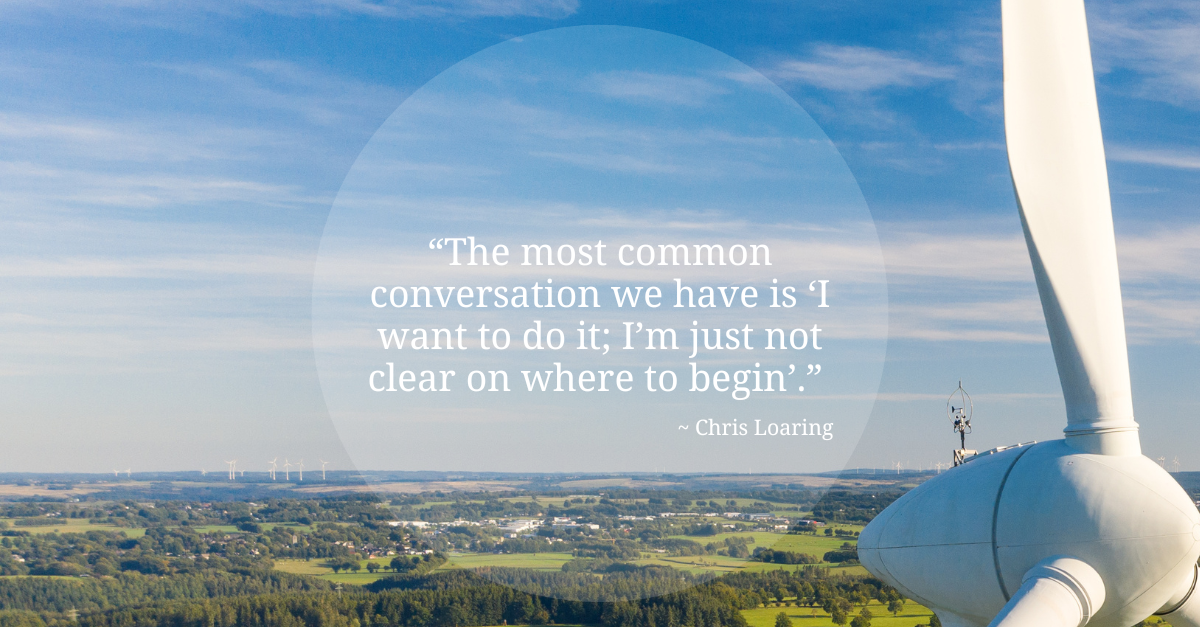
“Other partners already had a commitment, a pathway, and maybe a progress plan, so we can review, advise, and show them where they can improve in their journey to net zero.”
Beyond face-to-face consultation and ongoing support, we have a suite of digital platforms and software solutions that help our partners track and manage environmental compliance, so they miss nothing during the transaction. These tools can automatically flag potential issues and suggest actions, keeping high-street firms ahead of the curve and thriving.
Building a sustainable firm
Embracing sustainability is more than just meeting legal obligations; you need to future-proof your conveyancing practice. The onus is on law firms to set and implement policy, establishing a process that works for your business.
Liz continued, “We find early adopters and forward-thinking firms that champion expertise in environmental aspects of property transactions can expand the type of work they do and increase their revenue.”
Taking advice from a trusted partner is a great first step; they can tailor an approach that fits your profile and process. This is so much more than box ticking with a single product – this is an opportunity to make business sustaining changes that will drive a prosperous future, financially as well as for the planet.
Incorporating sustainability considerations into your day-to-day business enhances firm reputation and client satisfaction. Younger buyers, in particular, appreciate conveyancers who can speak knowledgeably about sustainability issues and provide practical guidance on environmental considerations.
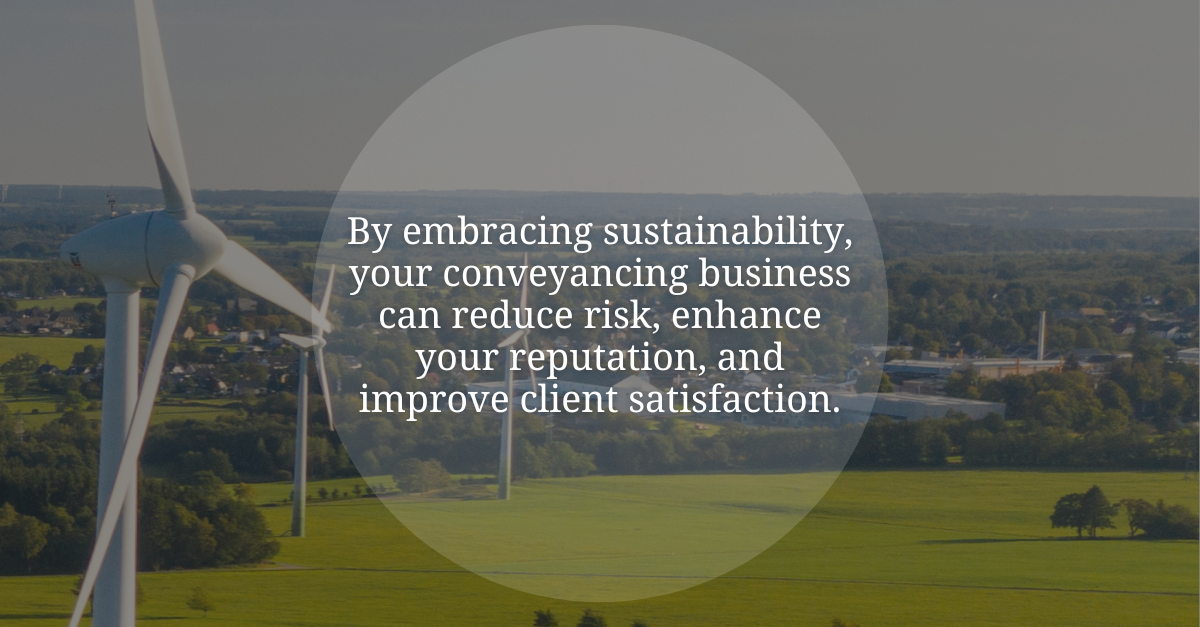
In 2025, there will be new guidance on how to manage climate change in conveyancing. The main part, part A, focuses on your firm’s own ESG and net zero promises, while a smaller part covers climate risks in property sales.
Nonetheless, it is the smaller part B that conveyancers are talking about, as it focuses on the specific risks of climate change on property transactions and conveyancers’ legal duties of warning and disclosing – and it brings with it a barrage of questions that small legal firms are struggling to contend with. Not least whether you, as a firm, should include climate checks in every sale, none, some, or let clients choose.
“It’s really important to provide full guidance for clients who want to consider climate change in property transactions – and it’s just as important to understand what you’re offering, what it means, and how you can integrate or embed it in your workflow,” says Chris.

Related Articles

Property Trends 2026: Why the industry is increasingly focused on gaining greater certainty

Five Minutes On… Road and Rail Schemes

Five Minutes On… Restrictive Covenants

Five Minutes On… Flood Risk
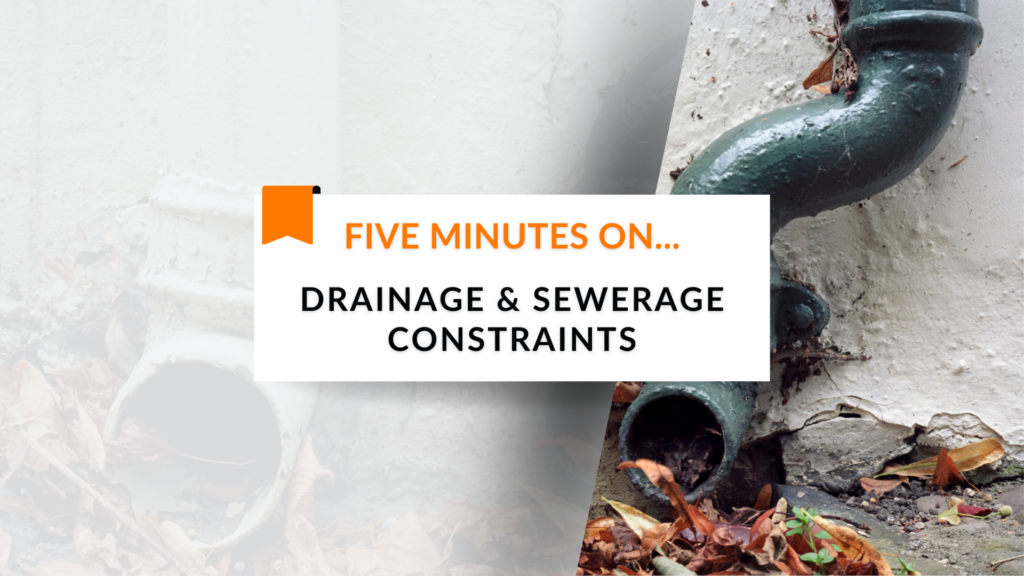
Five Minutes On… Drainage & Sewerage Constraints

Five Minutes On… Commons Registration & Village Greens

Five Minutes On… Houses in Multiple Occupation
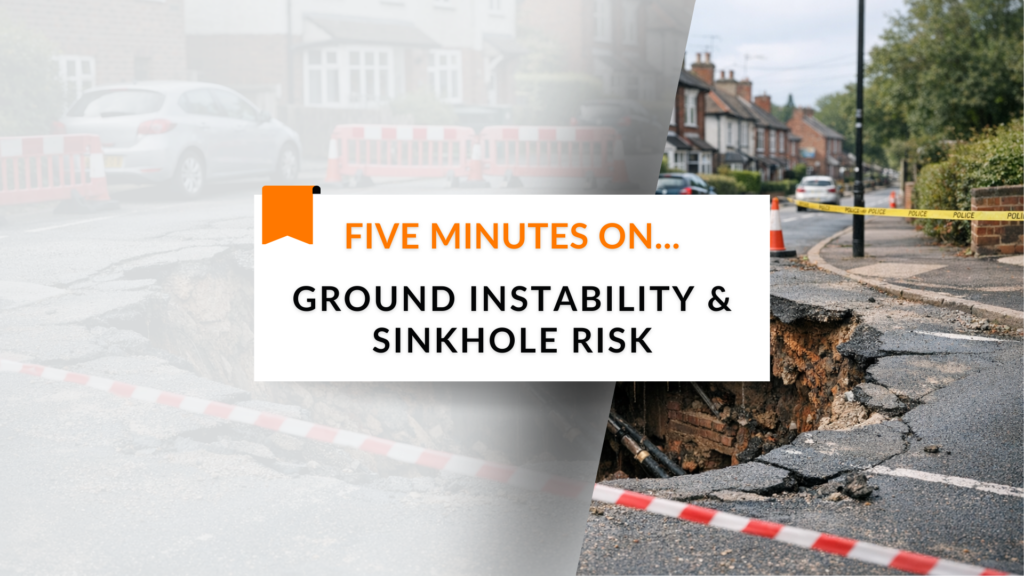
Five Minutes On… Ground Instability & Sinkhole Risk

Five Minutes On… Areas of Special Control of Advertisements

